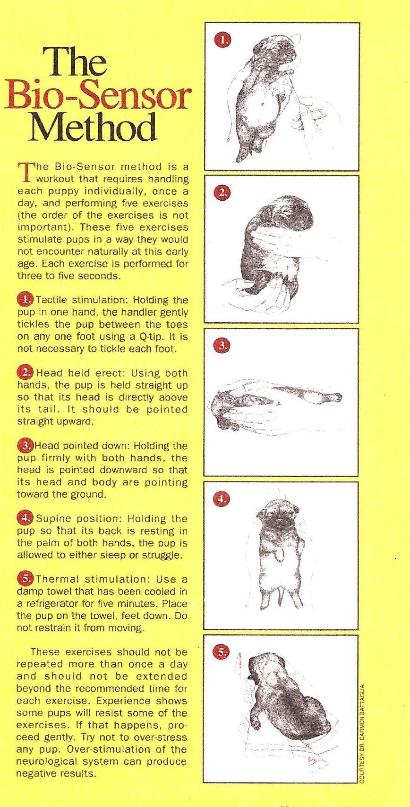
Neonatal 0-2weeks
When they are born puppies are blind and deaf. They rely on smell to stay with mom and their siblings. They are completely dependent on mom. This is when we will start early neurological stimulation.
Transitional Period 2-3 weeks
Puppies can start to hear and see. Teeth are beginning to come in. The puppies are now urinating and defecating without having to be stimulated. This means we can begin litter training, which will facilitate potty training later. Puppies that are not litter trained and get used to relieving themselves where they sleep can make potty training more difficult.
Primary Socialization 3-5 weeks
Senses are all working full tilt. We are going to work on noise desensitizing and clicker training. Potential owners may be allowed to visit.
Secondary Socialization 5-16 weeks
Puppy Training 5-8 weeks
We will be working on getting the puppies used to many things. We will practice car rides, walking on a leash, getting a bath, brushing and grooming, crate training, working with the commands; sit, lay down, come, stay and leave it.
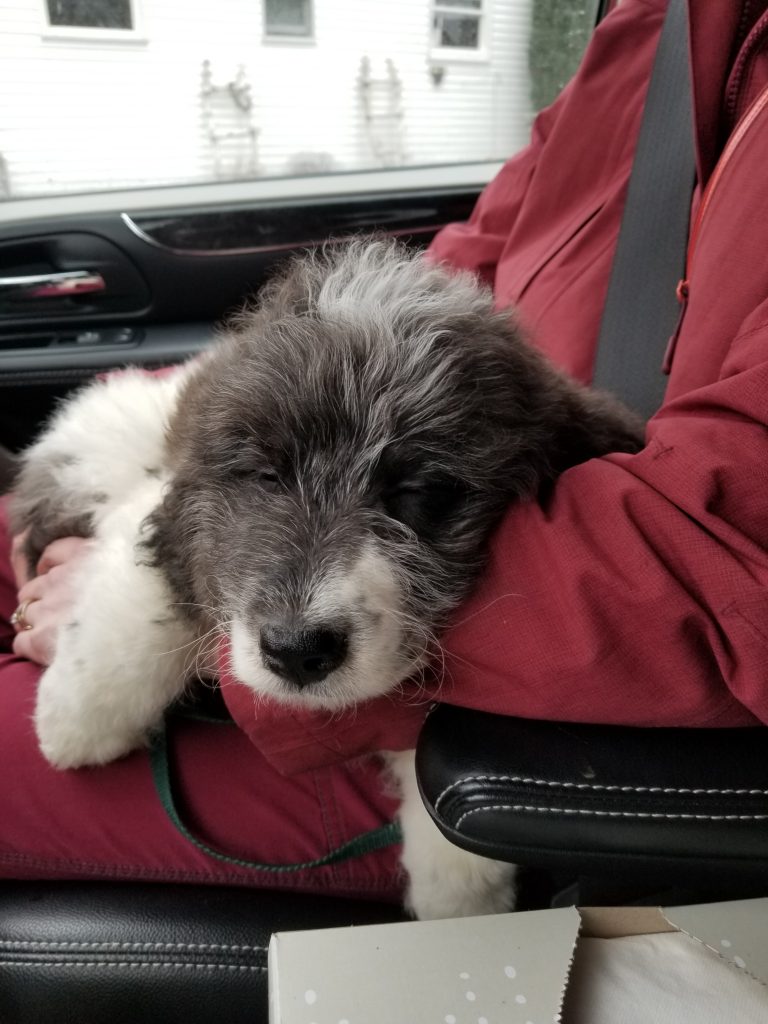
Puppies join their forever families 8-12 weeks
Training is every day every experience! The months of work I have done to make these puppies good can be undone in a matter of days. The whole family needs to be ready to work with the new family member so they will learn the rules of the house.
Remember to have a vet appointment for the day after you bring puppy home. Bring your health guarantee for the vet to sign. You should bring them in a carrier for the first couple of vet visits until they are fully vaccinated for parvo. Vet offices are a place where sick dogs and dogs with parasites spend time so it is important protect your puppy. If you haven’t already you should call to schedule your puppy’s grooming for 12-16 weeks of age.
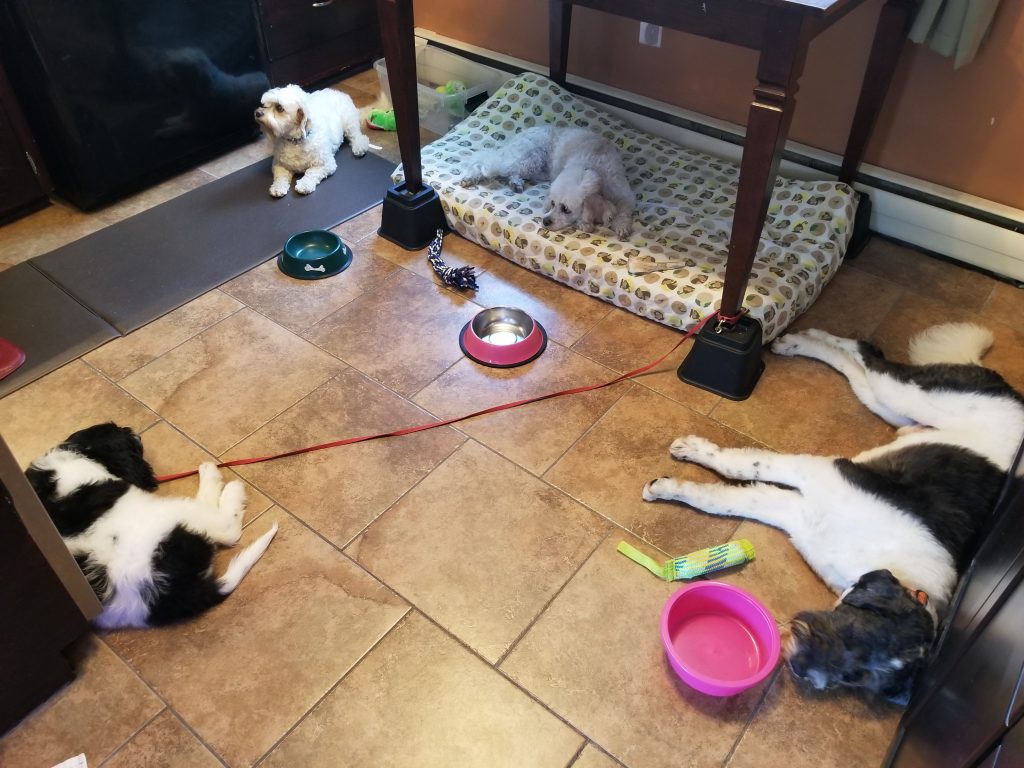
The puppies will be well prepared for their new homes. If you can organize to have time off when you are going to be bringing your. puppy home; this will be most beneficial. A good two weeks would be ideal for establishing proper potty habits in their new environment. When you are bringing your new puppy home bring a bully stick or some smelly treats to lure them. Whenever possible it is best to let the puppy enter new situations by their own power. This will be very important for the rest of their life and create a dog that easily enters new environments and doesn’t balk and freeze.
The key to potty training success is to prevent accidents and reinforce good behavior. Confining the puppy to a small area, preferably on a hard surface such as a tiled kitchen is perfect. They do not need the run of the house, that would lead to accidents One step at a time. Small areas with gates or keeping puppy on a leash is ideal. You should set up their crate in an area where they can feel like they are a part of the action but can observe safely.
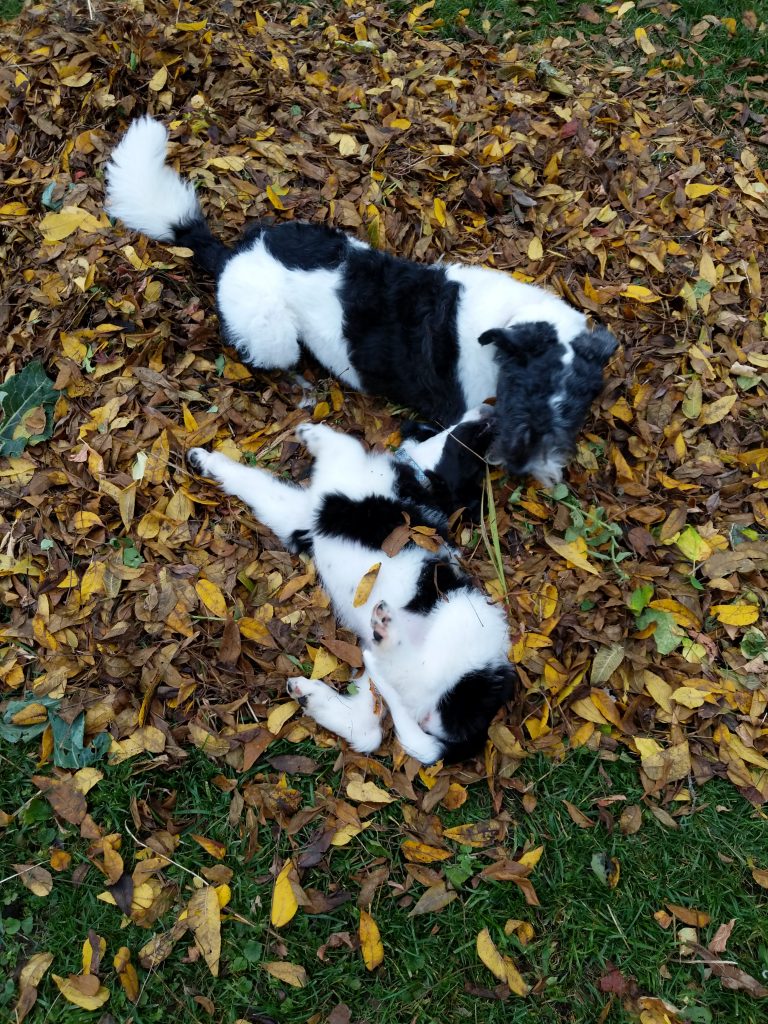
They will need to be taken outside to relieve themselves every 30 minutes when they are awake and possibly a couple of times at night. Your new puppy will need to eat three times a day. They will also want to play whenever they are awake.
Once your puppy is 12 weeks old they should be vaccinated against PARVO, which is the main concern to bringing them to places for socialization. Once the vaccine has had time to work, you may begin regular walks and a puppy training class may be beneficial, depending on your experience. I find two one mile walks a day to be ideal. They should be structured, not a wild free for all. You can have organized stops to sniff and let them take care of business, but that should be your choice. I use the command “Go potty.” This is also a good time for them to have their first professional grooming visit. The younger a dog is when being introduced to new experience the better it will go and the less fear and resistance there will be.
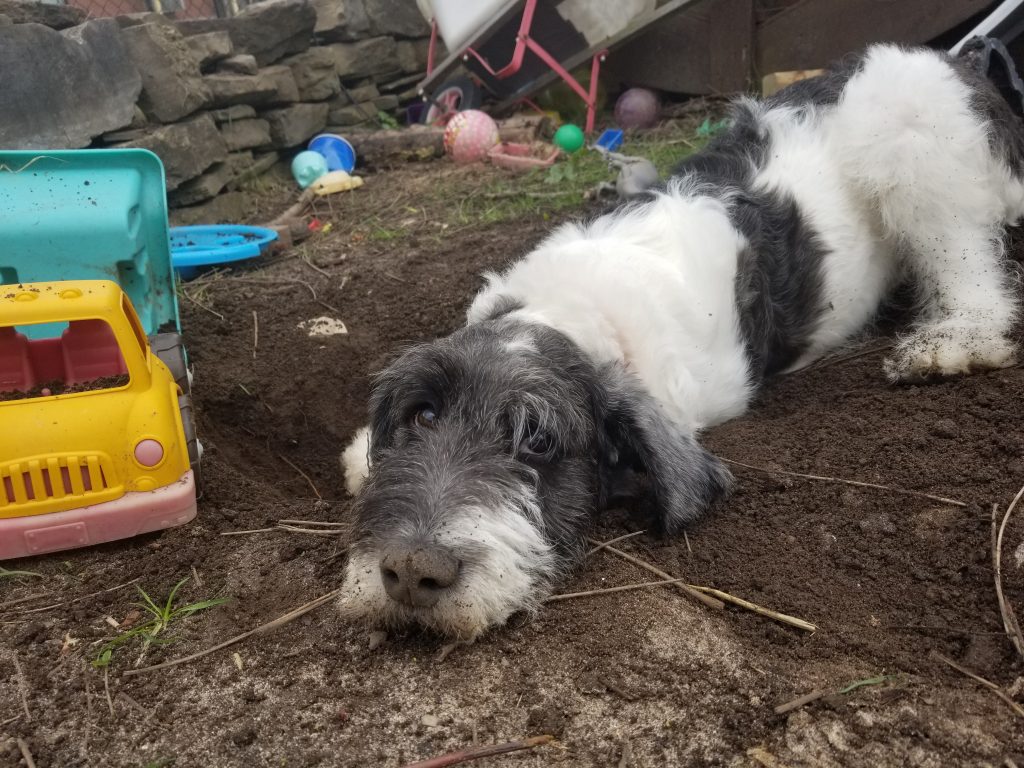
6-18 Months
Welcome to adolescence. All the wonderful training you dog has received seems to go right out the window at this age. Your dog is like a combination of a teenager and a two year old. Stay calm, be patient, your good dog is still in there. A little extra training every day and some extra exercise will help. In a few months, with some work you will be through the worst of it. This is going to be the age for spaying and neutering unless recommend by your vet. Females should be spayed before their first heat at 6 months. Male dogs can benefit from waiting until a year, but if their behavior is being a problem neutering will most likely help. Neutering doesn’t replace training but it can help take everything down a notch.
By the time your dog is three, they should be the best version of themselves and you can enjoy them for the rest of their life.